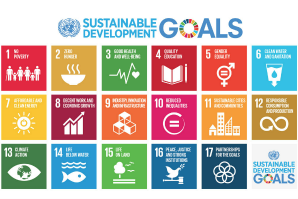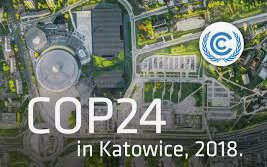A thought piece by Perform Green Sector Director William Edrich.
While pondering the current discussion happening at COP24 in Katowice, the recent IPCC special report published in October and the work that we are doing with our clients, it has become apparent that there is growing convergence of desire across many sectors to get on with building a better world irrespective of governmental slowness, climate deniers, extremists and last century advocates.
Quandry convergence
There are a number of quandaries that are impacting upon the ability to deliver better environmental and social outcomes for humanity and the planet while driving new zero carbon economic growth. These quandaries are converging upon and can be resolved through the prism of the energy sector focussed on the four D’s of decarbonised, decentralised, digitalised and democratised energy. The solution barriers to climate change and a more just society are not found in technology but are in the ethical changes to the organisation, and in individual behavioural structures. In essence, humanity has the technology, it just needs to find its collective moral integrity, and this will only be done through adjusting the trillions of actions that occur across the world every day to consider climate change and the elimination of poverty and inequality.
While it still looks potentially impossible, there is a profound convergence of thinking across a number of sectors that, if harnessed together, would provide positive behavioural and organisational change feedback loops to enable the delivery of a zero carbon sustainable and equal future for a majority of humanity.

- the levels of investment required in infrastructure that sustains our current and future trajectory to meet the UN Sustainable Development Goals
- the demographic shift of humanity to living in urban conurbations, overlaid with the challenges of climate change, poverty and the continued increase of inequalities providing a breeding ground for extremism.
The scale of investment needed
In 2017, the World Bank estimated that globally, humanity would need to invest $97 trillion by 2040 in infrastructure to meet the UN sustainable development goals, or $94 trillion without meeting the sustainable development goals. However, they did go on to estimate that on current spending humanity will be $18 trillion short by 2040. Much of this shortfall derives from the crisis of public sector and local authorities worldwide who are under-resourced in human, knowledge and financial capacity to meet their demographic and infrastructure challenges. In essence, the volume of infrastructure projects and the pace of delivery is too slow to address the tidal wave of demographic and climate change. For example; for the UK to meet its annual positive net migration since 2004 it would have had to build a zero to low carbon city the size of Southampton every year.
The recent IPCC special report in October 2018 has made it very clear that climate change is real and happening. In summary, emissions have to start to reduce immediately and humanity have until about 2030 to turn our current global industrial and societal system firmly onto a zero carbon trajectory.
Poverty, as defined by Bourguignon and Morrison, has significantly reduced since the start of the industrial revolution, even though there has been a seven-fold increase in population. The World Bank data indicates that the percentage of the world’s population living in absolute poverty falling from circa 44% in 1980 to circa 10% in 2015. This reduction in absolute poverty has come about through industrial growth and redistribution policies fuelled by the extraction of fossil energy. However, while there has been a reduction of poverty there has been a corresponding growth in inequality, which is increasing and provides a backdrop to social and political cohesion not only within countries but also between countries and regions, while providing a drag on GDP growth and a breeding ground for extremism, as outlined in the article “10 facts about poverty’s role in terrorism” written by the Borgen project.

Renewable energy provides some hope
This quandary convergence is not however without hope, and there are clear initiatives arising across many sectors that irrespective of the slowness of governments and re-actionists; people, companies and sub-national public sector organisations are taking unstoppable action. For example, there are now 158 worldwide companies that have committed via RE100 to go 100% renewable, i.e. match 100% of the electricity used across their global operations with electricity produced from renewable sources.
This is being supported by the financial community starting to take responsibility through the Investor Agenda resulting in an announcement by 415 investors with $32 trillion in assets-under-management at COP24 for governments around the world to step up action to address climate change.
In the USA, regardless of President Trump at the state level, the role of natural gas generated power is being undermined on cost across the country by renewable wind and solar power; in Chile renewable power has increased the security of supply and improved social cohesion in remote villages and towns; and Power for All is advancing renewable and decentralised mini-grids to deliver power to 85% of the 1.1 billion people in rural areas without reliable power by 2025, while creating jobs and improving gender equality.
Cities lead the way
However, with more than 50% of humanity living in cities and with cities having the cultural and economic weight (the top 750 cities account for 57% of global GDP) it is cities where this action can be mobilised in a way that will make a rapid transformation. Leaders of cities understand this, and there is a wide range of organisations supporting cities and local authorities to reduce climate change emissions and be more sustainable.
However, the pace of delivery at a policy and a practical level is too slow, with still too many compromises in favour of the status quo, last century approach of non-sustainable development when hard choices have to be made. This, coupled with the continued siloed approached within local public service, compounded by the private sector, only encourages a piecemeal and non-joined-up approach to tackling the challenges of emission reduction, demographic changes, the digital revolution and reduced resources. What has been demonstrated by a recent report by C40 and McKinsey Centre for Business is that cities can accelerate their emission reductions by a focusing on four action areas of:
- decarbonising the electricity grid
- energy efficiency in buildings
- next-generation mobility
- improving waste management.
However, this will require new public/private commercial structures, leadership and organisational change to enable it to happen.
21st-century leadership
Leadership in the 21st Century will be defined by private and public sector leaders who re-orientate their businesses and cities to re-define economic growth to focus on people, planet and profits as a holistic win-win-win situation. The time is now right for forward-looking leaders in both the private and public sector to carve out a new working relationship and commercial partnership structures that will increase the pace of delivery. This will require new modes of thinking, public/private business models and organisational change, which will have to occur anyway to meet our emission reductions or alternatively if we don’t!
In my next thought piece I will discuss the types of practical commercial structures, procurement approaches and mode of thinking that cities and companies can utilise to bring together the civic and private levels of human, knowledge and financial investment required to unlock the previously mentioned missing $18 trillion of infrastructure investment required to meet the UN Sustainable Development Goals.
Author
William Edrich
LinkedIn: www.linkedin.com/in/williamedrich
Twitter: @EdrichWilliam

